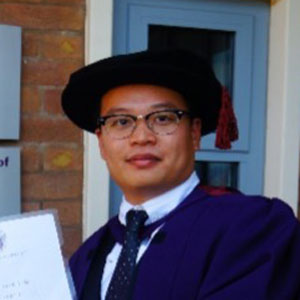

Bridge the Rent Gap
Amidst the global crises of housing unaffordability, land enclosures, and widening social inequalities, there is a renewed interest in land rent and rent gap theories. However, there is a lack of grounded research, and even less on the Global South/East, where 90% of the world’s population lives and intensive land struggles are taking place on a larger scale.
The online lecture series aims to offer new insights into land rent and rent gap theories based on examples from diverse geographical contexts. It features ten lectures, which will be delivered between April and May, 2024. It is jointly organised by Professor Ernesto López-Morales (School of Architecture, San Sebastian University, Chile) and Dr. Yunpeng Zhang (School of Architecture, Planning and Environment Policy, University College Dublin).

Dr. Joon Park
The first lecture was given by Dr. Joon Park (University of Seoul) on April 9th, 2024. Joon shared a Marxian perspective on land rents in housing submarkets. In particular, his lecture examined the relationship between residential spaces and the reproduction of labour power. Recordings of this lecture can be found here.
(opens in a new window)Recordings of the Lecture can be found here.

Gergely Olt
The second lecture was given by Gergely Olt (the HUN-REN Centre for Social Sciences, Institute for Sociology) on April 16th. His talk discussed housing market evolution and gentrification in post-socialist Budapest. Using this case, he highlighted the limitations of the rent gap theory and the importance of local conditions in shaping the gentrification processes.
(opens in a new window)Recordings of the Lecture can be found here.
On April 22, Dr. Matthew Richmond (Newcastle University) and Dr. Jeff Garmany (The University of Melbourne) discussed Milton Santo’s theory of “two circuits” of urban economies in the Global South. They then mobilised this theory to advance the understandings of gentrification and rent gap theories in Brazil.

Dr. Matthew Richmond
Dr. Matthew Richmond is Lecturer in Political Geography at Newcastle University.

Dr. Jeff Garmany
Dr. Jeff Garmany is Senior Lecturer of Latin American Studies in the School of Social and Political Sciences at the University of Melbourne.
(opens in a new window)Recordings of the Lecture can be found here.

Professor Violaine Jolivet
In the fourth lecture, Prof Violaine Jolivet (Université de Montréal) discussed housing market making practices and the migration-gentrification nexus in Cuba. Her ethnographic research explored Cuban diaspora’s investments in short-term rentals and the implications for the wider neighbourhoods. In doing so, she revealed the complexities of transnational gentrification in a southern socialist city and insisted on the need to understand more broadly the gentrification–migration nexus.

Ivo Gasic
On May 8, Dr. Ivo Gasic (Universidad Alberto Hurtado, Chile) provided a nuanced understanding of land financialisation by using the example of land purchase contracts in Chile.
(opens in a new window)Recordings of the Lecture can be found here.

Dr. Gu Hao
On May 14, Dr. Gu Hao (Hunan University, China) discussed commercial gentrification in China. He offered a framework to understand commercial gentrification and changing power dynamics in rent gap creation and appropriation within an extended period of time.
(opens in a new window)Recordings of the Lecture can be found here.

Dr. Selim Banabak
On May 21, Dr. Selim Banabak shared a novel approach to operationalise and measure rent gaps. This approach identifies rental-sector gentrification areas through index construction by drawing on insights from the gentrification, rent gap, price index and hedonic regression literatures.
(opens in a new window)Recordings of the lecture can be found here.

Dr Thomas Sigler
On May 23, Professor Thomas Sigler discussed the changes in the rental markets in Australia. Building on his team’s work, he demonstrated the spatial variation in rent gaps between short-term and long-term rentals over time in two distinct contexts in Australia. He also discussed how landlords sought to capture these rent gaps by changing the lengths of the tenancies.
(opens in a new window)Recordings of the lectures can be found here.

Dr Cheng Liu
On May 28, Dr. Cheng Liu discussed recent urban development practices and changing statecraft in China. Building on a critical reading of micro-regeneration practices and policies aimed at cooling down housing speculation surrounding quality educational resources, he argued that the Chinese state is not making the rent gap theory untrue.
(opens in a new window)Recordings of the lectures can be found here.

Dr. Chunhui Liu
On May 31, Dr. Chunhui Liu discussed the redevelopment of derelict neighbourhoods in Nanjing and the distributional outcomes. In particular, he brought the concept of the housing class to the debates on rent gaps and demonstrated how urban redevelopment in China has created an expanding housing class and how this class is implicated in waves of gentrification.
(opens in a new window)Recordings of the lectures can be found here.